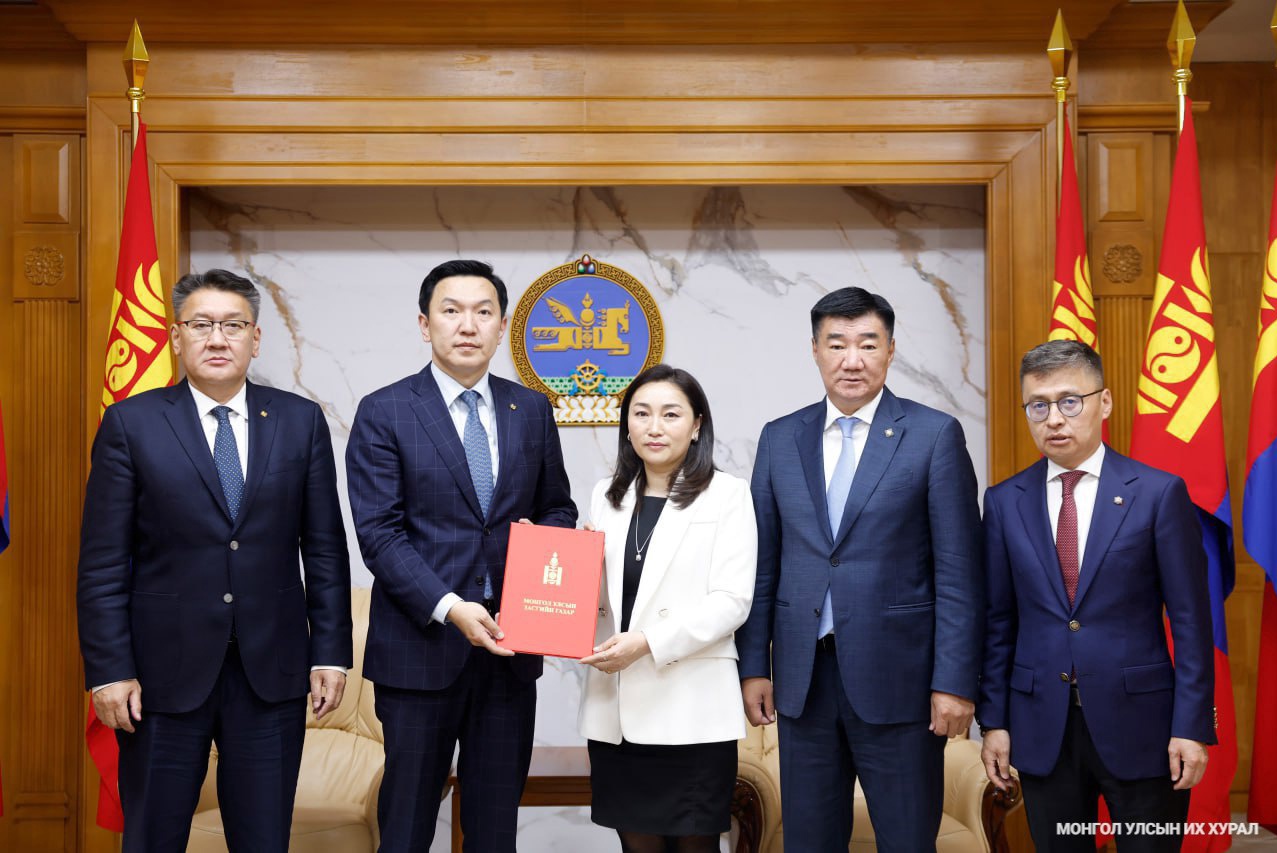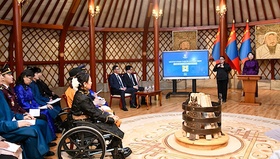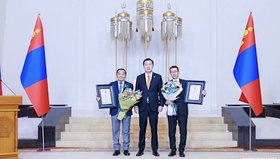On 25 June 2025, Deputy Chairwoman of the State Great Hural (Parliament) of Mongolia, Ms. Kh. Bulgantuya was formally presented with the Draft Law on Public Property—a revised version of the existing Law on State and Local Property—along with accompanying legislative proposals.
The draft legislation was submitted by Mr. N. Uchral, Deputy Prime Minister and Minister of Economy and Development, Mr. B. Javkhlan, Minister of Finance, and Mr. S. Byambatsogt, Minister of Mongolia and Chief of the Cabinet Secretariat.
This comprehensive legislative package aims to overhaul the legal framework regulating public (state and local) property in Mongolia. It seeks to enhance transparency, accountability, and efficiency in the management, use, and protection of publicly owned assets.
The proposed law and its supplementary bills will be deliberated in upcoming sessions of the relevant standing committees of the Parliament.
According to the Press and Public Relations Department of the State Great Hural (Parliament) of Mongolia, the revised draft of the Law on State and Local Property has been developed within the framework of legal reforms and policy objectives. The purpose is to align the regulation of public property relations—including state and local property—with the recent amendments to the Constitution of Mongolia, eliminate overlaps and gaps between laws, appropriately classify and define forms of public property, and establish an effective system for the management, registration, utilization, protection, and oversight of such property.
In line with the classifications of property specified in the Civil Code, and pursuant to Articles 15.12 and 28.5.2 of the Law on Legislation, the law’s title has been amended from the “Law on State and Local Property” to the “Law on Public Property”. The new title reflects its expanded scope to govern the fundamental relations surrounding public property. The draft law establishes the legal framework for the principles of public property governance, its purposes, classifications, and common relationships in public property management. It stipulates that while state and local property relations will be governed under this law, public and religious property relations shall be governed by separate laws in conformity with this law.
The law's objective has also been expanded to regulate general relationships related to the classification and governance of public property; acquisition, possession, use, and disposal of public property; registration, inventory, reporting, oversight, and transparency.
The draft comprises 9 chapters and 81 articles, incorporating substantial changes in principle. It revises the classification of state and local property in accordance with the Constitution of Mongolia, maintains the principle that the State Great Hural shall be the owner of state property, and that Citizens’ Representative Hurals of the county, the capital city, village, and districts shall be the owners of local property. The draft also eliminates overlaps and ambiguities in the roles and responsibilities of property managers and aims for coherence and coordination among relevant entities.
The supervisory functions of the State Property Committee and Local Property Offices have been clarified and legislated. Furthermore, provisions have been included to allow for the appointment of professionals specialized in asset management, valuation, and accounting to the State Property Committee through open and competitive selection.
The legal status of the property owners, property managers, and property holders has been optimized in alignment with the nature of property rights.
The governance of state- and locally-owned enterprises (SOEs)—including the exercise of shareholder rights, nomination of board members, and appointment of executive management—will be regulated under a separate, standalone law on SOEs.
Once adopted, the Law on Public Property will provide clarity regarding types of public property, asset classification, ownership rights, and the mandates of implementing entities. It is expected to contribute positively to bringing public assets into economic circulation, improving asset utilization, and increasing efficiency and valuation.

 Eng
Eng  Монгол
Монгол


